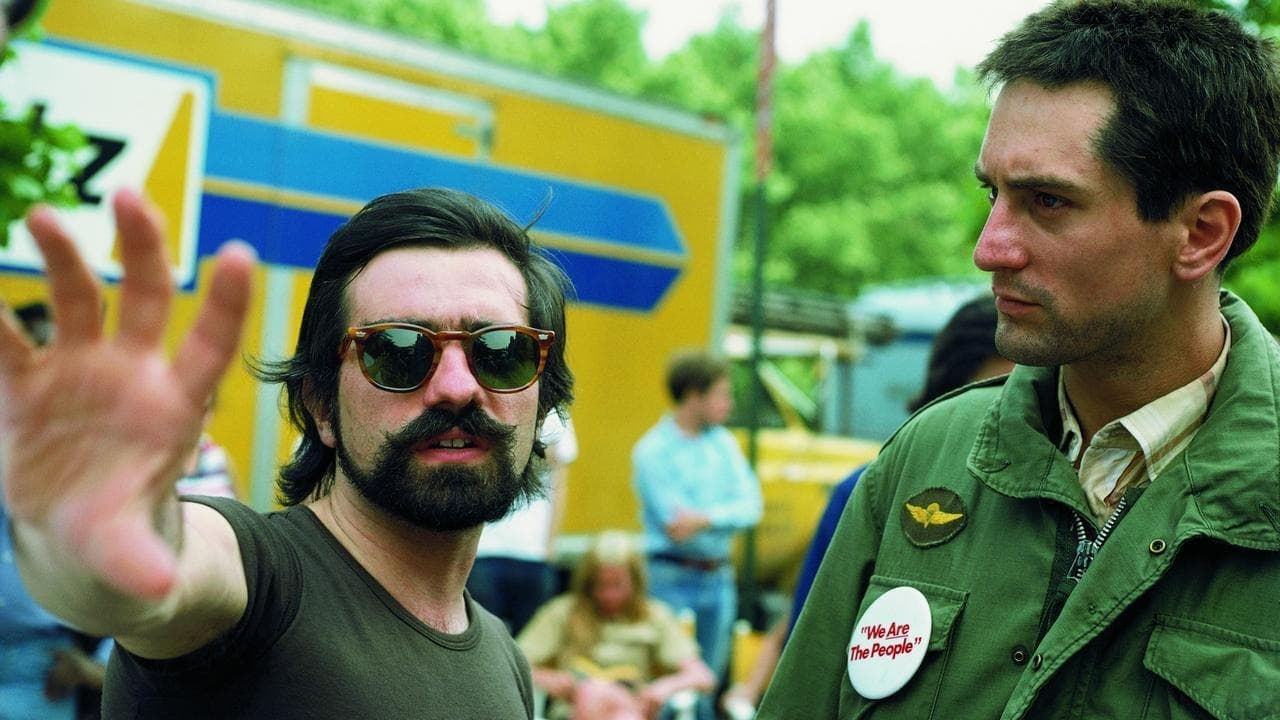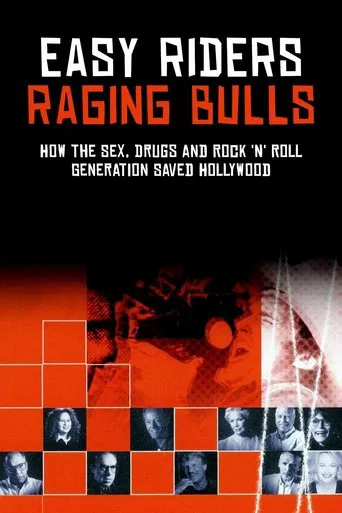

My impression of this documentary wasn't so great due to the fact of already seeing and knowing a similar themed work a few years ago called "A Decade Under the Influence" (2003), directed by Ted Demme and Richard LaGravenese, which was a better project for numerous reasons. I enjoyed "Easy Riders, Raging Bulls" for all the information that wasn't present in the other film but that's it.Narrated by William H. Macy, the movie presents a panorama of the New Hollywood, the generation of artists, directors, writers and even actors who gave a fresh air to the decadent old system of Hollywood, which was losing space and audience because of television's quality. People weren't going to the movies but after 1967 this started to change drastically when those rebel and young folks decided to make their revolutionary, controversial films inspired by what was going on in foreign cinema and movements like Nouvelle Vague, the Neorealism etc. Coppola, Lumet, Lucas, Spielberg, Scorsese, Altman, Cassavetes and others who made dynamic, powerful, explosive and box-office hits that molded how Hollywood is today with movies that now are true classics like "Jaws", "The Godfather", "Dog Day Afternoon" and many more. As established in both documentaries the period goes between 1967 and 1980, ending with the abysmal failure of "Heaven's Gate" putting studios in charge of the movies again, rarely giving final cut to the auteur.Based on a highly controversial book written by Peter Biskin, the film is filled of conjectures, gossips and speculations. Since most of the famous names like Spielberg and Lucas aren't here to present their side of the story (they're also absent in "A Decade..."), and even with reliable sources who were part of the movement giving their testimonies, this seems lacking in authenticity (the wild parties; or Brian DePalma disbelief in the effectiveness of "Star Wars" just to mention a few). There's good interviews with Karen Black, John Milius, Paul Schrader, Michael Philips and others who were part of the movement but a lot of absences here (they declined interviews for this particular project but accepted for "A Decade...", like Robert Altman for example).To me, the most fascinating aspect of the film was the explanation of the group's downfall (very few directors escaped from making flops after flops). There's a female producer who said something about how the box-office race affected the industry. If at one time studios were concerned about the product and the quality of it, now it's a money grabbing race just like the horse tracks.If viewed before "A Decade..." (which, again, is so much better developed) you might enjoy it more than I did. It's an entertaining piece, somewhat objective and a good source of information for starters in becoming familiar with the New Hollywood and their movies. 8/10
... View MoreThe withering latter-end of 1960s cinema gave birth to a short-lived area of mainstream artistic vision - the 1970s was a decade wherein "the director was the star of the movie." I've never thought of it this way, but as the documentary points out, it's a valid and poignant summary of the time period.This documentary - based on the best-selling book - offers an in-depth analysis of the film-making process of the 1970s... it starts out with "Easy Rider," from the late '60s, which became a huge box office success despite its profane content and extremely low budget.The financial success of the movie seemed to spawn a new generation of artistic, low-budget films -- Scorsese and Coppola seemingly leading the revolution onwards.Dennis Hopper would later fail with his semi-sequel to "The Last Picture Show" (as chronicled here) but other directors had success with their projects, attracting viewers despite the grungy themes of the films.I've heard that cinema "died" in the 1970s, so far as that people had stopped going to see movies...without the influx of 1980s blockbusters, we might not have films today. I think that's rather a stretch.If anything "Raging Bulls, Easy Riders" exaggerates the mild box office returns of the decade and tries to compensate for their low intake by citing critical praise for the films...all well and valid, when discussing the artistic merit...not financial gain.I found this to be a rather enjoyable documentary, but I didn't learn anything I hadn't already known. It's got some good interviews, but they're not as insightful as they are amusing anecdotes.If you are a film student, you could probably view a better and more in-depth summary of the decade; however, for novices, this is good starting ground.
... View MoreI read the book EASY RIDERS, RAGING BULLS by Peter Biskind and was amazed by it... If 'm honest I'm ashamed to say I rarely read for pleasure and it's something that I do meen to put right but EASY RIDERS, RAGING BULLS was an exception. Cliché's like "Couldn't put the book down" spring to mind!Anyway this was a good, interesting documentary based on the points brought up in Biskind's book!As a documentary it's very standard but the sheer subject matter makes it a very good 110 minutes of viewing.Shame some of the big names didn't agree to appear on this film... it would have been so much better!
... View MoreThis docu makes the misguided error of comparing the careers of Hal Ashby and Steven Spielberg. More different film-makers there have never been. However, by sheer virtue of sharing artistic or commercial success in Hollywood in the same decade, these two anomylous inclusions are lumped in together. Peter Bogdanovich regales us simpletons with his self-encyclopedia, as if he were ever more than a journey-man director. It's intriguing to see the commercial success of The Exorcist and the critical success of Mean Streets sharing the same five minute discussion with various Hollywood talking heads all of whom are past their prime.One of the rare gems of the film is the sequence recalling how Martin Scorcese, Paul Schrader, George Lucas, Spielberg and many other prominent male film-makers would hang out in the same beach houses in Malibu, but it's only ten minutes long. This is a film obsessed with the tangential perks of that divine spark that was the 70's renaissance of American movies. Presumably this film is based on a best-selling book of the same name, but all this film can sum up is that a bunch of cool movies came out in the 70's, and that, YES, the men who made those movies hung out from time to time. Honestly, you'd be better off just watching every film by the directors that this film interviews and save yourself the thankless task of listening to too many Hollywood has-beens pine for yesteryear. What really happened to these people's careers? Drugs for some, ego for others. Spotty at best, this film just isn't all it could be. 3/10
... View More